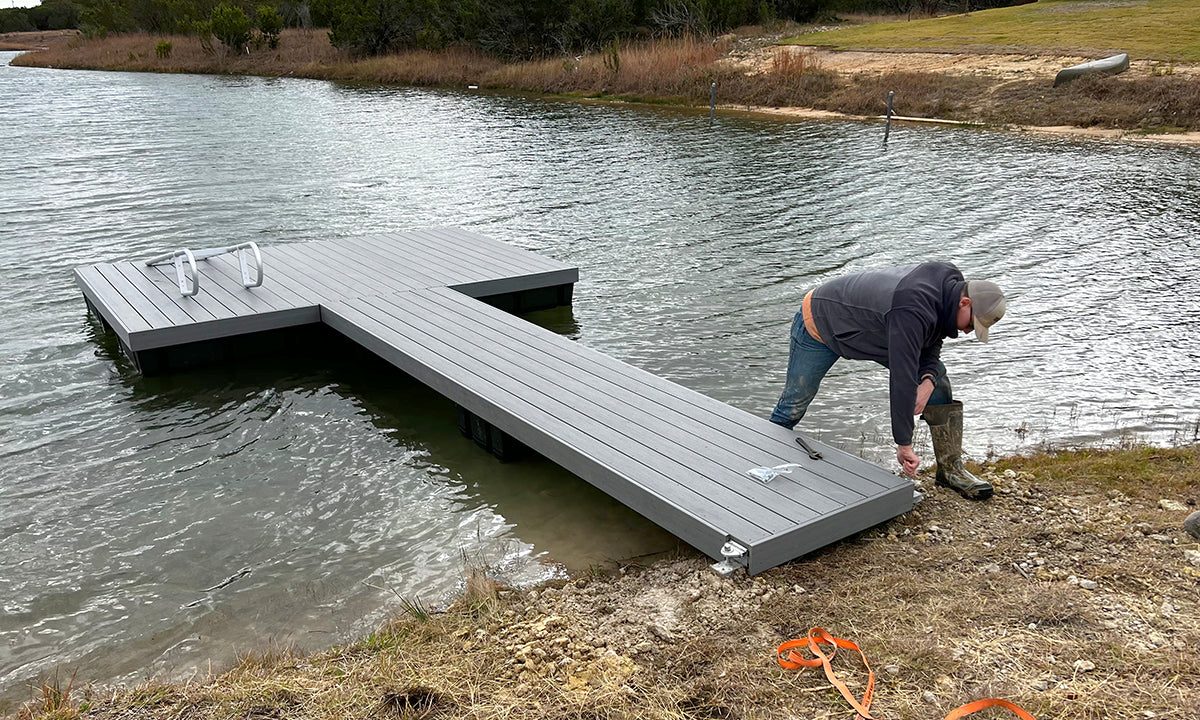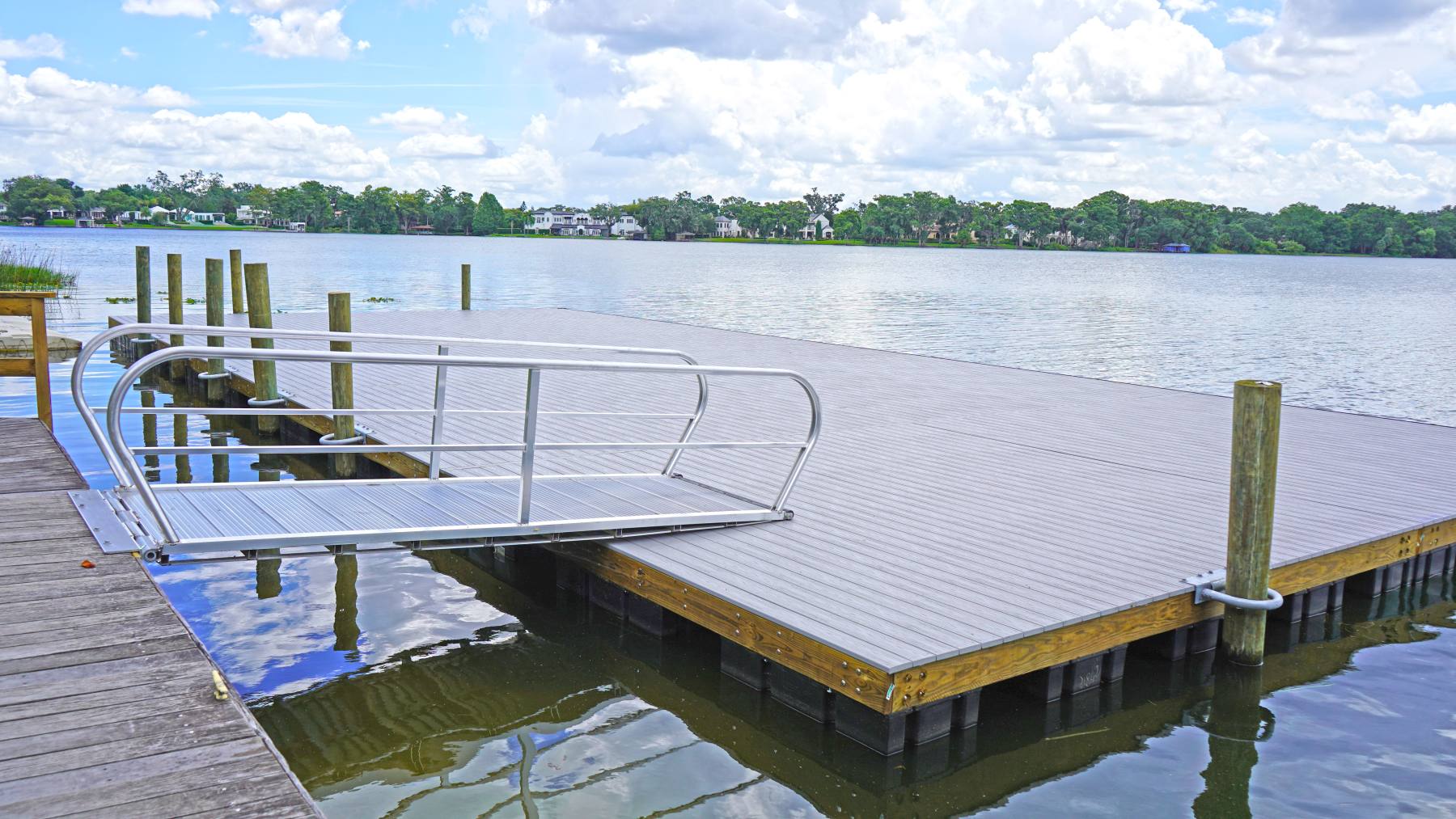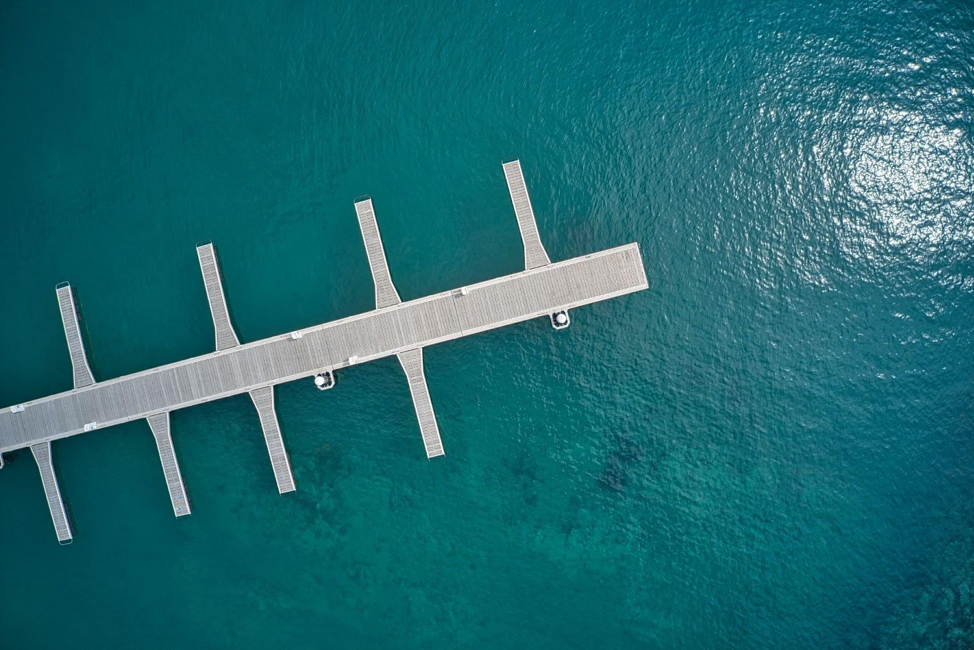The Ultimate Overview to Selecting the Best Floating Docks
Choosing the excellent floating dock requires a comprehensive understanding of different aspects that affect both performance and long life. Variables such as dock kinds, products, and important attributes significantly impact your decision-making procedure.
Comprehending Floating Dock Types
When choosing a drifting dock, it is vital to understand the numerous kinds readily available, as each offers distinctive objectives and applications. Floating docks largely fall under three groups: modular, stationary, and pontoon docks.
Modular docks are composed of specific sections that can be quickly set up or reconfigured, making them optimal for transforming water levels and varied usages, such as leisure tasks or industrial procedures. Their flexibility permits for modification based upon details demands.

Pontoon docks are characterized by their buoyant structure, typically composed of multiple pontoons that supply stability and assistance. They are specifically appropriate for bigger vessels and are generally utilized in marinas or for waterside residential or commercial properties. Understanding these types help in selecting the most ideal floating dock to meet specific demands, guaranteeing optimal capability and security.
Trick Materials for Toughness
Picking the best products for floating docks significantly effects their resilience and long life. One of the most usual products consist of timber, plastic, metal, and composite materials, each offering distinctive advantages and limitations.
Timber, frequently preferred for its visual allure, requires routine upkeep to hold up against moisture and decay. Pressure-treated lumber can improve resistance to rot, yet it might still be vulnerable to insects and weathering.

Plastic docks, made of high-density polyethylene (HDPE), are immune to rust, UV radiation, and impact, making them a preferred choice for seaside atmospheres. Their light-weight nature likewise facilitates very easy installation and moving.
Metal docks, generally created from aluminum or galvanized steel, give outstanding strength and longevity. They are resistant to deterioration, especially when dealt with, but may call for additional insulation to stop heat buildup in hot environments.
Composite products, integrating timber fibers and plastics, deliver the advantages of both wood and plastic, withstanding dampness and fading while needing marginal maintenance. - floating dock company
Ultimately, the option of products must align with ecological conditions, meant use, and maintenance preferences to make sure the floating dock continues to be functional and visually pleasing gradually.
Essential Features to Think About
While the option of products is crucial, considering vital functions for floating docks is just as vital to make certain optimal performance and user fulfillment. One vital feature to examine is the dock's buoyancy ability, which figures out exactly how much weight try these out it can sustain without submerging. floating dock services. This is vital for suiting watercrafts, personal boat, and even address recreational activities
Furthermore, portability is a considerable factor to consider. Depending upon your needs, you may desire a dock that is very easy to transport and take apart, especially if you prepare to move it seasonally. Stability is one more important feature; a well-designed floating dock should minimize motion triggered by wind and water currents, offering a protected system for individuals.
Safety attributes, such as non-slip surface areas and rounded edges, are likewise vital to stop crashes, especially important site in damp conditions. Think about the schedule of accessories, such as ladders, bumpers, and cleats, which can boost the functionality of your dock.
Setup and Maintenance Tips
Setting up and keeping a floating dock calls for careful planning and focus to information to ensure its long life and optimal performance. Begin by choosing an appropriate area that lessens direct exposure to solid currents and waves, which can create deterioration. Ensure that the water deepness is sufficient for the dock's elevation which it is secured firmly to avoid motion.
During installment, adhere to the supplier's guidelines closely, as improper assembly can compromise stability. Use high-grade products immune to corrosion, such as aluminum or treated wood, to improve resilience. Regularly check all parts, including floats, ports, and securing systems, for signs of damages or wear.
Upkeep is crucial for extending the life of your dock. Tidy the surface areas occasionally to avoid algae build-up and look for any type of loose fittings that might call for tightening up. Guarantee they stay totally free and intact from punctures if your dock utilizes flotation devices. Additionally, consider using safety layers to wood elements to decrease weathering results. By sticking to these installation and upkeep ideas, you can take pleasure in a trustworthy and practical floating dock for years to come.
Budgeting for Your Dock
Budgeting for your dock is a critical action that can dramatically influence your overall complete satisfaction and investment in a beachfront residential property. Establishing a clear spending plan aids you navigate the different options available and guarantees you make notified choices that line up with your financial abilities.
Begin by identifying the size and layout of the dock you require, as these aspects will greatly affect the cost. Floating docks can vary substantially in rate, depending on materials, buoyancy, and functions like devices and ramps. Study various suppliers and suppliers to compare prices and comprehend the market worth.
In enhancement to first costs, think about continuous costs such as upkeep, insurance, and potential repairs. Assign funds for these recurring expenses to prevent shocks down the line. It's additionally prudent to budget for any kind of necessary authorizations or examinations, which might be needed by neighborhood policies.
Lastly, bear in mind the prospective roi. A tactical dock can enhance your home's value and appeal, providing a favorable economic effect in the long term. By budgeting effectively, you can make certain that your dock satisfies your demands without jeopardizing your economic stability.
Final Thought
In verdict, choosing the excellent floating dock necessitates a comprehensive examination of different variables, including dock types, materials, essential attributes, and setup procedures. Cautious consideration of financial restraints will certainly even more make certain an audio financial investment.

While the choice of products is critical, considering necessary features for floating docks is similarly essential to make certain ideal efficiency and customer fulfillment.Setting up and preserving a drifting dock requires mindful preparation and focus to information to ensure its long life and optimal efficiency. Floating docks can differ substantially in price, depending on materials, buoyancy, and functions like accessories and ramps.In conclusion, picking the optimal floating dock demands a complete assessment of different aspects, consisting of dock kinds, materials, crucial functions, and installment procedures.